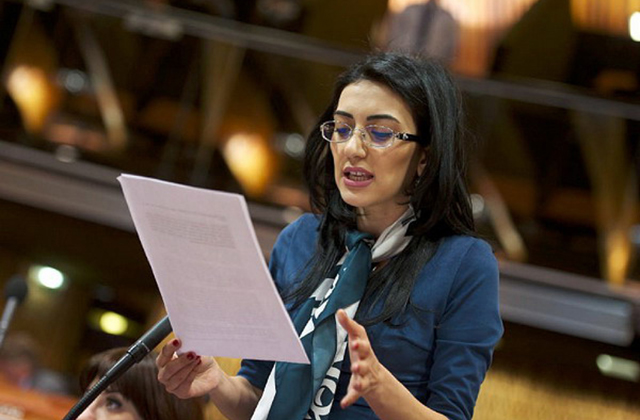“Football is more than just a game” – Arpine Hovhannisyan addresses issues of the global business in PACE

Arpine Hovhannisyan, head of the Armenian delegation to the Parliamentary Assembly of the Council of Europe, has delivered a speech in the assembly on the issues of football.
Arpine Hovhannisyan delivered the speech on behalf of the EPP political group.
“This topic is indeed actual. It is no secret that the volume of financial resourced circulating in international football increases every year due to the yearly growing interest towards football. Moreover, new businessmen and organizations possessing huge financial means are investing in international football, aiming at increasing their own incomes in new markets for them”, Hovhannisyan said.
Hovhannisyan stressed that football is more than just a game or leisure option, it is a prospect business direction, which is proved by the growing volumes of broadcasts (as result, incomes of federations, leagues and clubs are increasing from the sales of broadcast licenses), the growth of participation and competition in various sports events between clubs, namely major clubs, growth of volumes of sales of club shirts and memorabilia.
“This list can go on very long. The commercialization of global football, naturally, can’t not impact the value of the transfer market and football stars. From the first sight it may seem that there is no negative occurrence that a new business direction has formed and is developing in the global economy. However, the commercialization of football is creating a huge financial hole between small and big clubs. It is enough to only mention that a big club can allow itself to pay 100 and more million Euros to acquire 1 player, when small clubs are unable to have 5% of the transfer budget of big clubs for updating their team for the entire year”, she said.
The MP mentioned that it is impossible to acquire famous players with small amounts of money, and small clubs have to deal with average level squads. According to her, until recently small clubs had the opportunity to benefit from various tools, such as joint rights for players, loaning, involvement of players from youth teams to the main teams and others.
“These measures aren’t only beneficial for small clubs, but also contribute to ensuring the employment of players, since they get the chance to play in small clubs and get more skilled, which leads to the increase of their transfer value. As result , these players are able to play in big clubs, while small clubs continue their activities. Nevertheless, the abovementioned Italian model was cancelled, which has negatively impacted small clubs. The other negative impact for small and medium clubs was the adoption of the new regulations of financial FAIR PLAY”, she said.
“If we limit certain opportunities, we must think about proposing alternatives to the small clubs. Otherwise we will have a situation when big clubs are monopolizing the market by pushing the smaller ones out of competition, which in turn will negatively impact players having new and average level”, she said.

























